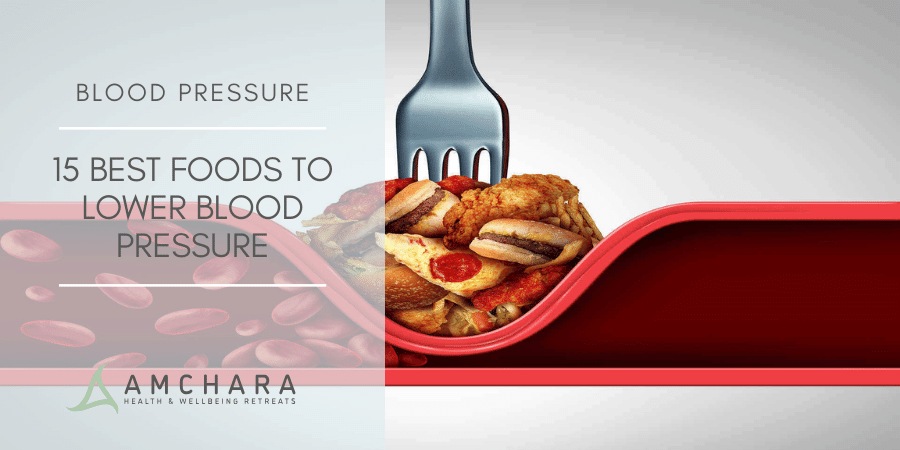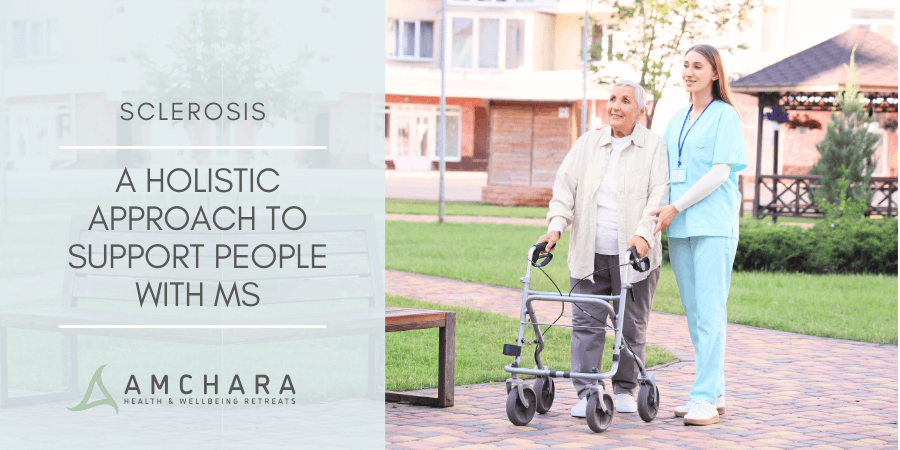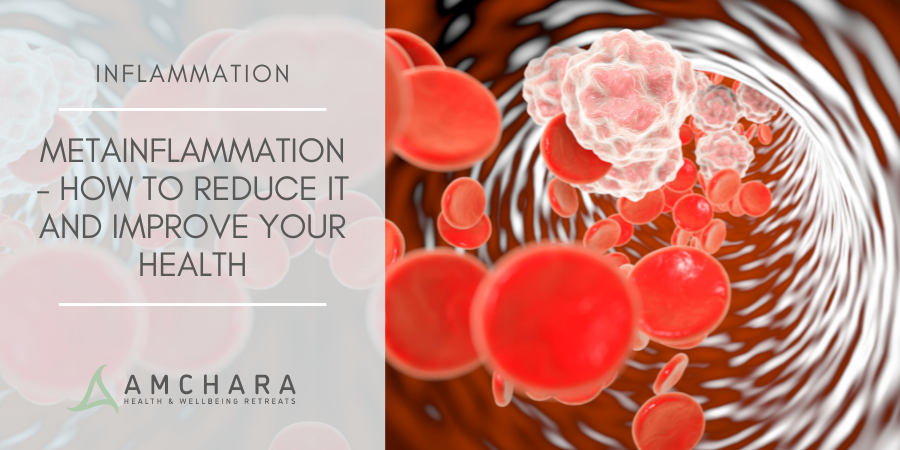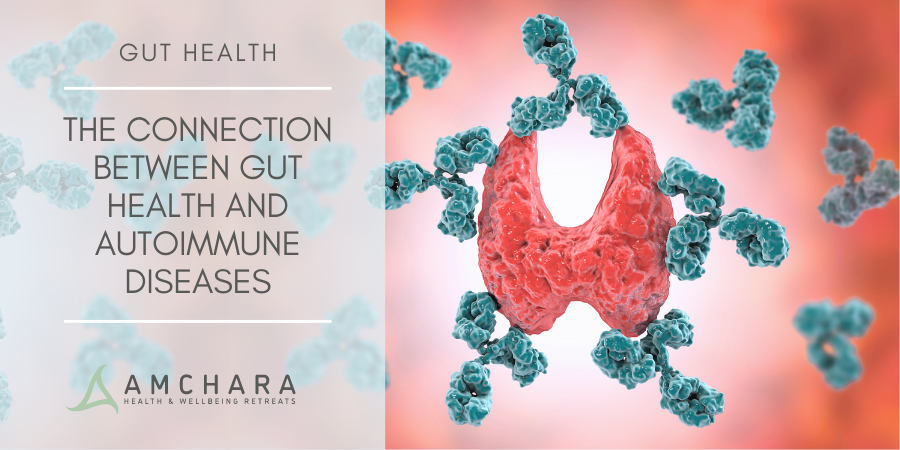Lifestyle | Diet | Blood Pressure | Healthy Foods to Try
According to Public Health England figures, high blood pressure affects more than 1 in 4 adults worldwide.
12% of all visits to GPs in England are related to blood pressure queries, so it seems a great deal of us are looking to reduce our blood pressure.
High blood pressure is a major risk factor for premature death.
It can sometimes lead to heart disease, stroke, kidney disease and vascular dementia, however, it can often be prevented or controlled through lifestyle changes.
In this article, we list 15 foods that lower blood pressure.
First, watch this video by Barbara Mendez [11:49]
Your doctor may have warned you that you need to keep an eye on your blood pressure, but it doesn’t automatically mean you will need to resort to blood pressure lowering drugs.
It is, however, a great opportunity to take stock and make some changes.
There are plenty of natural solutions that could provide significant benefits not just to your blood pressure but to your overall cardiovascular health.
Make Some Lifestyle Changes
Achieving your ideal body weight is really important if you have high blood pressure.
Your Body Mass Index (BMI) should ideally be between 18 and 25.
The NHS provides a handy tool to help you calculate this: http://www.nhs.uk/Tools/Pages/Healthyweightcalculator.aspx.
Even losing a modest amount of weight may help to reduce blood pressure.
Your waist circumference should also be considered.
Men with a waist measurement over 40” (102cm) and women with a waist measurement of over 34” (88cm) are considered overweight.
Just in case you’re not sure, your waistline is located just above your belly button and below your rib cage.
If you lean to the side, your natural waistline is where the skin creases.
Regular aerobic exercise is incredibly important for heart health and managing blood pressure.
One study found just 60-90 minutes a week of aerobics was beneficial, so it needn’t be daunting.
Another study showed taking a brisk 10-minute walk every day significantly reduced blood pressure.
Keep your stress levels down.
Yoga, meditation, and breathing exercises are excellent ways to introduce calm into your life and keep blood pressure in check.
Try acupuncture. Some studies have found that it may be helpful in lowering blood pressure.
Adjust Your Diet
Book recomendation: DASH Diet: The Ultimate DASH Diet Guide to Lose Weight, Lower Blood Pressure, and Stop Hypertension Fast – by Mark Evans
Cut out caffeinated drinks, smoking, and alcohol as these are associated with raised blood pressure.
Avoid red meat, fried food, and dairy products. These are high in the type of saturated fats which contribute to atherosclerotic plaque formation and therefore narrowed arteries.
Narrower arteries mean higher blood pressure.
Reduce salt intake.
Ideally, this should be coupled with increasing your potassium intake as the balance between these two minerals is important.
Eat plenty of fruit and vegetables, whole grains, and legumes which are high in potassium.
Eat a variety of whole foods such as brown rice, oats, barley, quinoa, buckwheat, corn, lentils, and beans.
These are all rich in fibre and nutrients needed to keep your heart and cardiovascular system healthy.
Avoid foods containing refined carbohydrates.
This means cutting down on sugar, biscuits, cakes, puddings, pastries, fizzy drinks, confectionery, ice cream, jams, tinned and processed foods.
These can pile on the pounds and increase levels of unhealthy fats in the blood.
Here are selected resources that discuss foods to lower blood pressure:
What should blood pressure be?
Follow a healthy lifestyle to keep it at this level.
More than 120 over 80 and less than 140 over 90 (120/80-140/90):
A single high blood pressure reading doesn’t necessarily mean that you have high blood pressure. You could’ve just climbed Mt. Everest, so it’s important to do multiple readings over time. If they all show consistent readings of high blood pressure then you will need to work on lowering your blood pressure.
Choose from these 15 heart-healthy foods that lower blood pressure:
1. Strawberries & Blueberries
These contain substances called anthocyanins and flavones. Increasing intake of flavonoid-containing fruits like strawberry and blueberries has been shown in studies to manage high blood pressure.
2. Unsalted Nuts
Nuts are rich in magnesium which helps to relax muscles and may reduce constriction of the peripheral blood vessels. Choose from unsalted almonds, pistachios, Brazils, and cashews.
3. Flaxseeds
Eating flaxseeds has been linked to reduced blood pressure. It’s not clear why this happens but it may be due to a combination of the fibre, lignans, alpha-linolenic acid and peptides they contain.
4. Seaweed
Marine algae contain compounds called fucoidans which have a range of health benefits. They are anti-inflammatory, antioxidant and anti-coagulant and have been shown in studies to maintain healthy blood vessels and support normal blood pressure.
5. Coconut Water
Coconut water – the liquid found in young coconuts – is jam-packed with electrolytes including potassium. It contains 600mg potassium per 240g. One study found that coconut water reduced systolic blood pressure (the pressure in the arteries when the heart beats) by an incredible 71%.
6. Dark Chocolate
By this, we mean specifically dark chocolate, because it is rich in substances called flavanols. These are thought to assist blood pressure regulation because they play a role in the production of nitric oxide in the body. This chemical is known to widen blood vessels and promote the flow of blood, so reducing blood pressure. Dark chocolate is also high in magnesium.
7. Celery
Celery is a great source of potassium, and according to researchers at the University of Chicago Medical Centre, celery also contains a compound known as 3nB. This plays a role in maintaining healthy blood pressure – although it’s highest in celery seed. Celery is a great addition to a cleansing juice.
8. Broccoli & Sweet Peppers
These are high in vitamin C. Scientists have shown that vitamin C containing foods significantly lower blood pressure – even more so in those people with hypertension.
9. Kiwi Fruit
Researchers at the University of Oslo found a link between eating kiwi fruit and reduced blood pressure. This effect may be due to their potassium content and the high levels of carotenoids. Kiwi is also a rich source of Vitamin C.
10. Oily fish
Fish like sardines, mackerel, salmon and fresh tuna contain omega 3 essential fatty acids. These have been shown in studies to protect against cardiovascular disease and may significantly reduce blood pressure. These oils are also anti-inflammatory. Research has linked inflammation to elevated blood pressure. While fish oils are an excellent source of omega 3’s they can also be found in walnuts.
11. Hibiscus Tea
Research has found that three cups per day of hibiscus tea reduced blood pressure. Hibiscus tea contains high levels of antioxidants, phenols, and anthocyanins which might explain these effects.
12. Beetroot
Beetroots contain inorganic nitrates, which are thought to increase the level of nitric oxide. This, as we’ve seen, naturally lowers blood pressure, and beetroot juice has been found by researchers to significantly reduce blood pressure after just one week. Beetroot juice is a delicious addition to a vegetable juice.
13. Garlic
In a double-blind study – in other words, when the subjects taking part did not know they were being given a garlic extract – it was found that garlic extract significantly reduced blood pressure over a 1 – 3 month period, and these results have been replicated in other studies.
The beneficial effects are thought to be attributable to garlic’s sulphur-containing compounds such as allicin. Garlic also appears to increase the production of nitric oxide. The effect of garlic is enhanced when combined with vitamin C containing foods.
14. Purple potatoes
These contain high levels of antioxidants in their purple colour, along with fibre, potassium, and vitamin C. This combination of nutrients appears to have a positive effect on capillaries and blood vessels helping to regulate blood pressure.
15. Turmeric
Many studies have found turmeric has anti-inflammatory effects. Reducing inflammation may help to reduce blood pressure. Turmeric also contains compounds which appear to prevent the blood vessels from constricting. Turmeric is especially effective when combined with black pepper.
So – there you have it. 15 fabulous and delicious foods to naturally lower your blood pressure.
Try to incorporate these regularly into your diet to keep your blood pressure heading in the right direction.
It’s easy to combine many of these ingredients in a juice or smoothie.
At Amchara we specialise in deliciously healthy juices and smoothies designed to maximise nutrients and re-boot your health.
Blood Pressure / Blood Sugar related stories:
- Blood Sugar Imbalance
- Easter doesn’t have to be a nightmare for your blood sugar
- Ease your blood pressure through nutrition
- Raw Foods That Lower Blood Sugar
References
- Aflaki E et al. Oral Supplementation of Turmeric Decreases Proteinuria, Hematuria, and Systolic Blood Pressure in Patients Suffering from Relapsing or Refractory Lupus Nephritis: A Randomized and Placebo-controlled Study. Journal of Renal Nutrition. 22; 1: 50–57.
- Ahluwalia A et al. Clinical evidence demonstrating the utility of inorganic nitrate in cardiovascular health. Nitric Oxide.2014 Apr 30; 38:45-57.
- Boutron Roualt MC etal. Flavonoid intake and incident hypertension in women. Am J Clin Nutr. 2016 103: 1091-1098.
- Cassidy A et al. Habitual intake of flavonoid subclasses and incident hypertension in adults. Am J Clin Nutr 93; 2, 338-347.
- Holford P (1998). Say No To Heart Disease. Piatkus Press: UK.
- Holford P 1997). The Optimum Nutrition Bible. Piatkus Press: UK
- Kapil, Vikas et al. “Dietary Nitrate Provides Sustained Blood Pressure Lowering in Hypertensive Patients: A Randomized, Phase 2, Double-Blind, Placebo-Controlled Study.” Hypertension2 (2015): 320–327.
- Lee S er al. “Effects of oral magnesium supplementation on insulin sensitivity and blood pressure in normo-magnesemic nondiabetic overweight Korean adults” Nutrition, Metabolism and Cardiovascular Diseases Epub ahead of print.
- Passwater R Dr (1977). Supernutrition For Healthy Hearts. Thorsone Publishers: UK.
- Public Health England. Long term health conditions and obesity and healthy eating. https://www.gov.uk/government/news/new-figures-show-high-blood-pressure-costs-nhs-billions-each-year. [Accessed 28.4.17.]
- Se-Kwon Kim & Thanh-Sang Vo. Fucoidans as a natural bioactive ingredient for functional foods. Journal of Functional Foods 5; 1: 16–27.
- Shouk R et al, Mechanisms underlying the antihypertensive effects of garlic bioactives. Nutr Res. 2014 Feb;34(2):106-15.
- Eggebeen J et al, One Week of Daily Dosing With Beetroot Juice Improves Submaximal Endurance and Blood Pressure in Older Patients With Heart Failure and Preserved Ejection Fraction. JACC Heart Fail. 2016 Jun;4(6):428-37
- Doddabele Madhavi, et al. A Pilot Study to Evaluate the Antihypertensive Effect of a Celery Extract in Mild to Moderate Hypertensive Patients. Natural medicine Journal, April 2013 Vol. 5 Issue 4
- Alleyne T, Roache S, Thomas C, Shirley A, The control of hypertension by use of coconut water and mauby: two tropical food drinks. West Indian Med J. 2005 Jan;54(1):3-8.
*Please note:
The nutritional advice given is appropriate to the general public and may not suit individual dietary restrictions.
Where possible Amchara recommends a healthy approach to eating which excludes dairy, sugar, and gluten-containing produce, but this may not suit all people.
Organic foods free from dairy, gluten, and sugar are available in local health food stores and some supermarkets, giving you the option to adjust menus and still enjoy your favourite foods.
It is important to maintain balance and variety in any diet and above all enjoy guilt-free eating that promotes optimal well-being.











